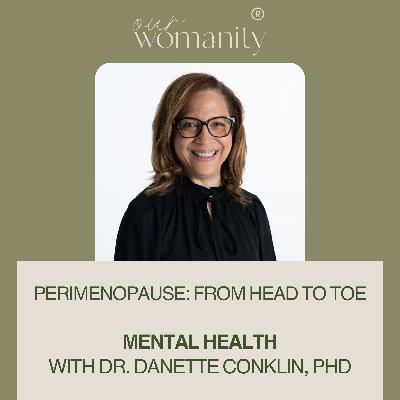13. Perimenopause: Cognitive Changes with Dr. Rita Shkullaku
Description
This episode addresses a terrifying but common experience for midlife women: the cognitive changes, or "brain fog," that pop up during perimenopause and menopause. Many women fear they are experiencing early-onset dementia.
Host Dr. Rachel Pope speaks with Dr. Rita Shkullaku, a board-certified internist with a special interest in nutrition, obesity, and hormones as they relate to cognitive wellness and healthy aging.
The Reality and Biology of Brain Fog
Dr. Shkullaku confirms that brain fog—forgetfulness, concentration issues, and a blank mind—is very real. She notes that having "mild cognitive issues for eight to ten years has no small impact" on high-functioning women.
The problem stems from both:
- Direct Effects: Estrogen drops affect the brain’s ability to use the prefrontal cortex and manage stress.
- Indirect Effects: Severe sleep deprivation from night sweats and hot flashes dramatically worsens cognition.
To distinguish serious issues from hormonal brain fog, Dr. Shkullaku uses the Self-Report vs. Intervention rule: women with typical brain fog are aware of their struggle, while those with true early dementia are often unaware and brought in by family.
Practical Strategies and Treatment
Management requires a holistic approach, starting with the foundation:
- Prioritize Sleep: Address the underlying hormonal issues or anxiety that keep you awake.
- Redistribute Responsibility: Normalize the struggle and ask partners/family for help to create time for self-care.
- Complex Cognitive Training: Pick up a new complex activity (like a new instrument or language) to engage the brain differently.
- Nutrition: Follow the MIND Diet (a hybrid of the Mediterranean and DASH diets).
Treatment: If medically eligible, Hormone Replacement Therapy (HRT) is a great option, primarily by eliminating sleep-disrupting symptoms. If not, Cognitive Behavioral Therapy (CBT), mindfulness, and addressing reversible causes (like iron or B12 deficiencies) are crucial.
























